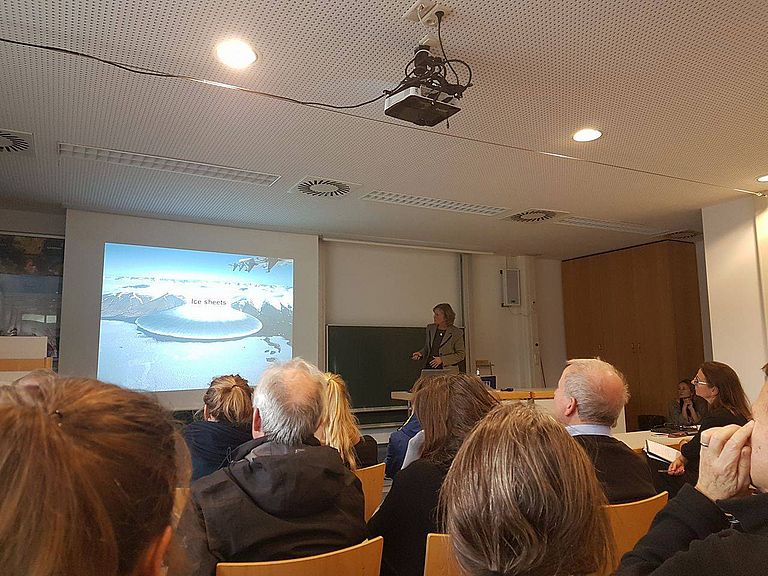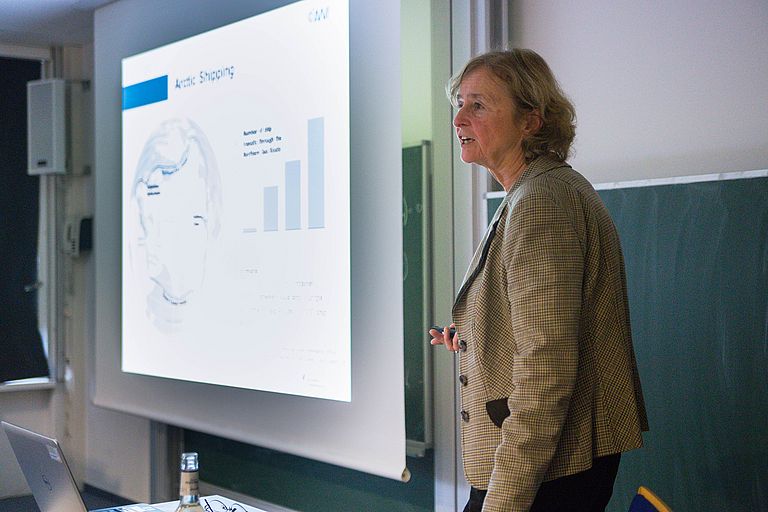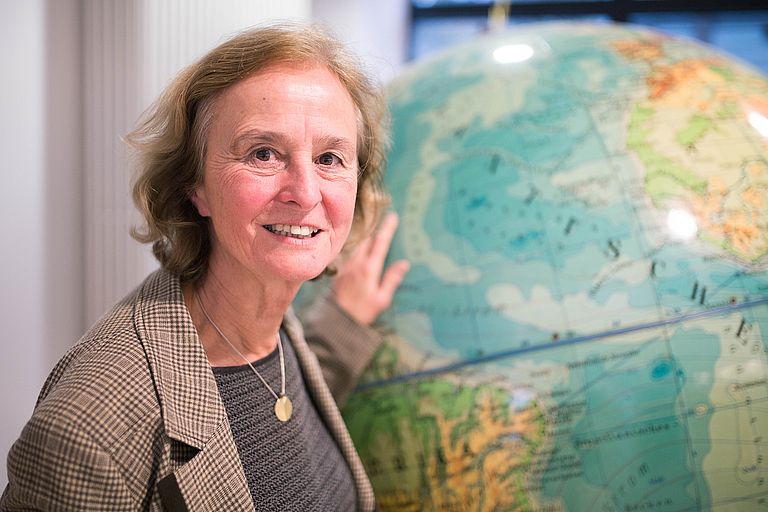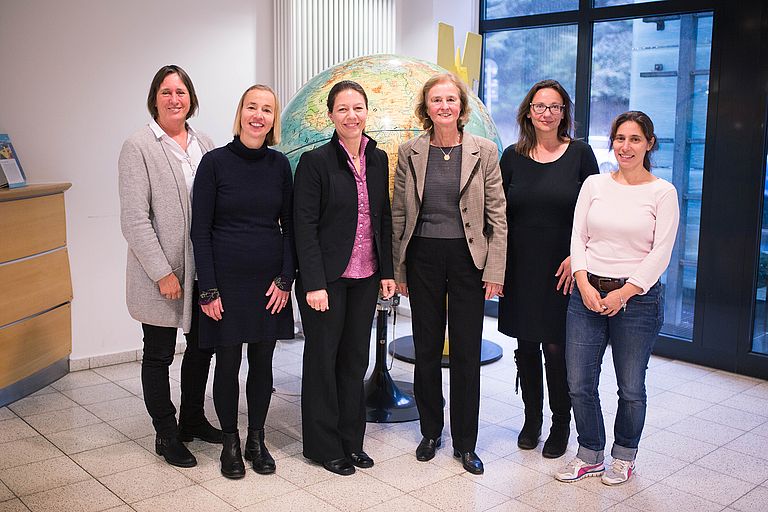Ice Melt in the Polar Seas
Dr. hc Karin Lochte held the 21st Marie-Tharp Lecture for Ocean Research at the GEOMAR
15 November 2017/Kiel. Long-term observations from the Arctic give a clear signal. Both the perennial sea ice in the Arctic and the ice sheets and glaciers are melting rapidly, even faster than predictive models of the IPCC. Thus, the summer sea ice cover in the Arctic shrank from about 7 million km² in the 80's to about 4.2 million km² in 2016. What processes are involved in the loss of ice masses and the consequences for polar sea ecosystems are not yet fully understood. The exploration of the polar regions thus becomes a race against time. Changes in the polar regions can cause sea-level rise, affecting regions as remote as the islands of the South Seas. Already, the effects of climate change on the Fiji Islands, which have just chaired the UN Climate Change Conference COP23 in Bonn, are already noticeable. Further consequences are expected for the temperature of the oceans, the atmospheric circulation and the global water cycle, changes that ultimately affect the global climate. On the other hand, ice-free areas in the Arctic are opening new avenues for commercial shipping and the mining of mineral resources. However, possible economic gains are offset by significant environmental risks.
Yesterday, in the 21st Marie-Tharp lecture at GEOMAR at the GEOMAR Helmholtz Centre for Ocean Research Kiel, Dr. hc Karin Lochte, former director of the Alfred Wegener Institute Helmholtz Centre for Polar and Marine Research, not only presented a current and comprehensive overview of the climatic changes in the polar regions, she also showed the methods used by scientists at the AWI to explore the polar regions. With these method, as well as with the aid of computer simulations, researchers gain a picture of the variability and trends in ice covering on site. The polar researchers are particularly interested in year-round observation data, which are missing for many areas such as the central Arctic. A new international research project aims to fill this data by enabling, for the first time, a year-round observation of the central Arctic. For the Multidisciplinary Drifting Observatory for the Study of Arctic Climate (MOSAiC), Polarstern will be used as a drifter through the Arctic for one year starting in 2019.
Prof. Dr. Dr. hc Karin Lochte completed her master's degree in marine science at the University College of North Wales after passing her state examination at the Technical University of Hanover. After receiving her doctorate in 1984, she returned to Germany to conduct research on the microbiology of the deep sea at the Kiel Institute for Marine Research and the Alfred Wegener Institute for Polar and Marine Research (AW). After her habilitation at the University of Bremen in 1994, she accepted a professorship at the University of Rostock and headed the section Biological Oceanography of the Institute for Baltic Sea Research (IOW) for five years. Between 2000 and 2007, Karin Lochte took over as Professor of Biological Oceanography, the head of the eponymous research unit at IFM-GEOMAR. Since 2007, she has been the director of the AWI, a post she handed over to her successor, Prof. Dr. Antje Boetius, on 1.11.2017. Prof. Lochte has helped shape German marine research in numerous national and international committees. For her achievements, she received the Federal Cross of Merit of the first order this year.
The "Marie Tharp Lecture Series" is hosted by the Women's Executive Board (WEB) of GEOMAR. The WEB invites internationally renowned female scientists who, on the one hand, present their scientific work in Kiel, but at the same time serve as role models for young female scientists. As in previous lectures, after the public lecture a get-together took place only for female scientists. There, young female researchers can exchange ideas with more experienced female colleagues and discuss possible career paths.






